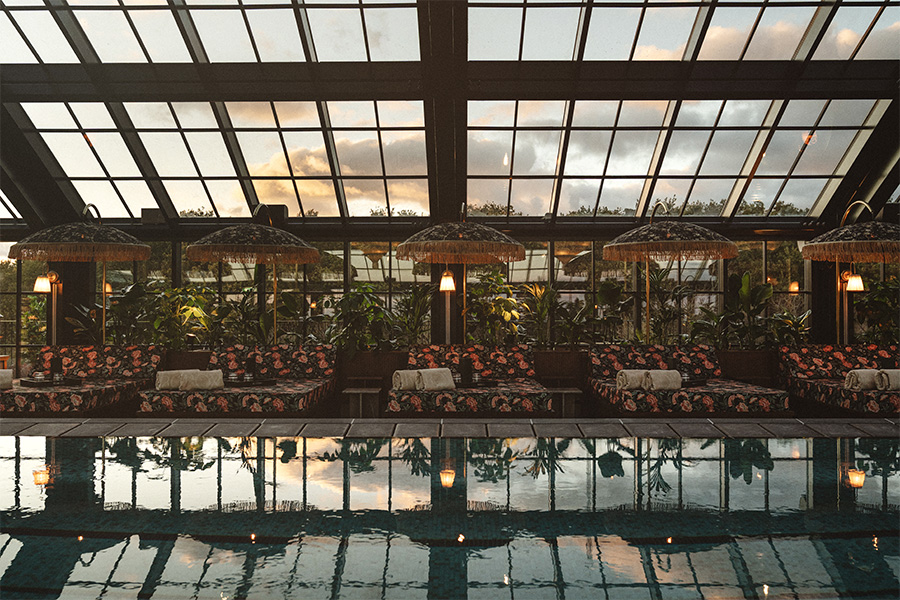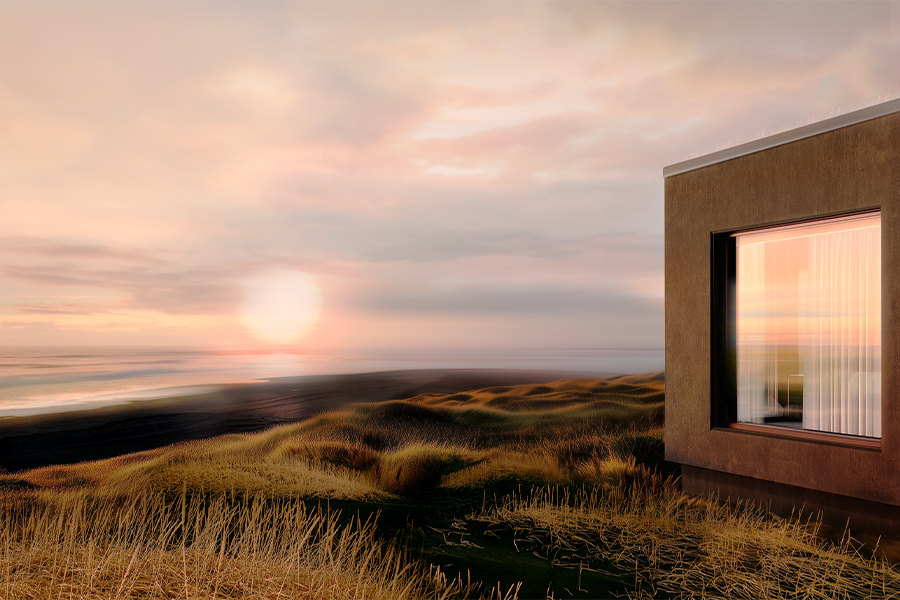Done with city life and ready for a change, former East Londoners Miriam Haniffa and Laurie Spencer packed up their Shoreditch home and two young children in 2016 and moved to Sri Lanka with the plan to open a boutique hotel. “We felt drawn by the boho spirit of the south coast beaches and surf breaks that first lured in hippies and surfers in the 1960s,” Spencer says. “It seemed like the perfect place to create a new breed of tropical lifestyle retreat.”
Both first-time hoteliers, Haniffa (whose father is from Sri Lanka) and Spencer drove through “winding paths and paddies,” says Haniffa, until they discovered a sprawling and disused coconut plantation. With the jungle and mangroves as its backdrop, the Palm Hotel Sri Lanka was born.

Rattan furniture contrasts industrial accents in a relaxed seating nook
Residing in the surf town of Ahangama, the hotel is a fusion of “tropical modernist design in Asia and the Brutalist redevelopment of East London warehouses and shipping containers,” explains Spencer. Working alongside local designers, the pair created a minimalist property that employs recycled materials and a muted pink palette in its pair of two-bedroom suites and six A-frame cabanas, which are outfitted with insulated roof sheets made from zinc aluminium to reduce the need for electricity and the overall footprint of the resort.
The standout, however, is the open-air industrial-style restaurant, bar, and pool area. Here, repurposed double-height shipping containers and a steel structure with warehouse-style windows frame a single palm tree. “It creates an arresting focal point that integrates [with] the jungle,” says Haniffa.
The remote destination also includes a few surprises. “During the rainy season, the paddy fields below the property transform into a lake visited by water buffaloes and flocks of cranes,” Spencer says. “It is the most incredible natural display, and our guests love sitting on their porches watching the changing colors as the sun sets over the water.”

The outdoor patio looks out onto the lush surroundings

Shipping containers were repurposed into the restaurant, bar, and pool area (left); Minimalist A-frame cabanas are covered with insulated roof sheets composed of zinc aluminum (right)
This article originally appeared in HD’s September 2020 issue.



